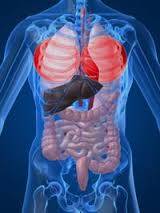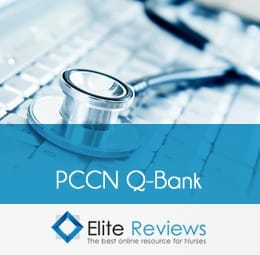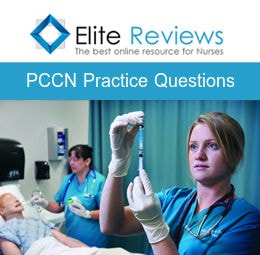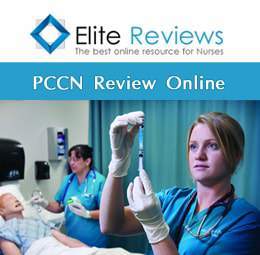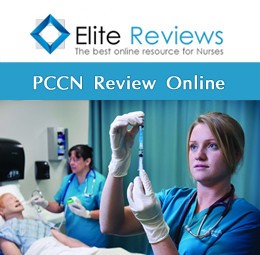PCCN Endocrine Exam Overview
PCCN Endocrine Exam Overview
The Endocrine portion of the PCCN Exam will encompass roughly 5 to 8 questions on the national exam. In comparison to a lot of the other sections, this is a relatively small portion of the exam. Nevertheless, this is a significant portion in the event you get all of the Endocrine questions incorrect. It would be wise to put as much emphasis on this section as you do on the other sections of the exam. In this article, we will cover the PCCN Exam outline as it relates to the Endocrine section. We will also cover Diabetes Insipidus which is one of the areas of focus on the PCCN exam as well as some practice questions.
PCCN Exam Endocrine Outline
- Endocrine Hormones
- Diabetes Insipidus
- Diabetic Ketoacidosis
- Hyperglycemic Hyperosmolar Nonketotic Coma (HHNK)
Endocrine Anatomy & Physiology
The Endocrine system refers to the collection of glands of an organism that secrete hormones directly into the circulatory system to be carried towards distant target organs. The major endocrine glands include the pineal gland, pituitary gland, pancreas, ovaries, testes, thyroid gland, parathyroid gland, hypothalamus, gastrointestinal tract and adrenal glands. The endocrine system is in contrast to the exocrine system, which secretes its hormones to the outside of the body using ducts. Special features of endocrine glands are, in general, their ductless nature, their vascularity, and commonly the presence of intracellular vacuoles or granules that store their hormones. In contrast, exocrine glands, such as salivary glands, sweat glands, and glands within the GI tract, tend to be much less vascular and have ducts or a hollow lumen.
Diabetes Insipidus
DI is a condition characterized by excessive thirst and excretion of large amounts of severely dilute urine, with reduction of fluid intake having no effect on the concentration of urine. There are different types of DI, each with a different set of causes. The most common type is central DI, which involves a deficiency of vasopressin, also known as antidiuretic hormone (ADH). The second common type of DI is nephrogenic DI, which is due to kidney or nephron dysfunction caused by an insensitivity of the kidneys or nephrons to ADH. DI can also be gestational, or caused by alcohol or some types of drug abuse. DI should not be confused with nocturia.
Signs & Symptoms of DI
- Excessive urination
- Extreme thirst
- Blurred vision
Diagnosis of DI
- Water deprivation test
- Urinalysis
- MRI of brain
- Genetic screening
Classification of DI
- Neurogenic DI – more commonly known as central diabetes insipidus, is due to the lack of vasopressin production in the hypothalamus due to a range of causes. The underlying causes of central DI can include vascular, autoimmune, infection, sarcoidosis, some drugs, surgery, head trauma, benign or metastatic pituitary-hypothalamic tumor, although 50% of cases are found to be idiopathic.
- Nephrogenic DI – is due to the inability of the kidney to respond normally to vasopressin.
- Primary Polydipsia or Dipsogenic DI – results from excessive intake of fluids as opposed to deficiency of arginine vasopressin. It may be due to a defect or damage to the thirst mechanism, located in the hypothalamus, or due to mental illness. Treatment with DDAVP may lead to water intoxication.
- Gestational DI – occurs only during pregnancy and the postpartum period. During pregnancy, women produce vasopressinase in the placenta, which breaks down ADH. Gestational DI is thought to occur with excessive production and/or impaired clearance of vasopressinase.
Treatment of DI
- Central DI (Neurogenic) – because the cause of this form of DI is a lack of anti-diuretic hormone (ADH), treatment is usually with a synthetic hormone called desmopressin. You can take desmopressin as a nasal spray, as oral tablets or by injection.
- Nephrogenic DI – this condition is the result of your kidneys not properly responding to ADH, so desmopressin is not a treatment option. Instead, your doctor may prescribe a low salt diet to help reduce the amount of urine your kidneys make. You’ll also need to drink enough water to avoid dehydration.
- Gestational DI – treatment for most cases of gestational DI is with the synthetic hormone desmopressin.
- Primary polydipsia – there is no specific treatment for this form of DI, other than decreasing the amount of fluid intake. However, if the condition is caused by mental illness, treating the mental illness may relieve the symptoms.
PCCN Endocrine Practice Questions
1) Which of the following statements regarding fluid management is correct, regarding patients with diabetes insipidus?
A) Electrolyte levels must be monitored to determine the correct IV fluids to administer
B) If the diabetes insipidus is nephrogenic, vasopressin will need to be administered
C) If the diabetes insipidus is neurogenic, only fluids will need replacement
D) The patient’s output must exceed his intake in order to prevent complications
2) The nurse is performing an admission health assessment on a newly diagnosed 54 year old male admitted with diabetes insipidus. Which of the following assessment findings would the nurse expect to see in a patient with that condition?
A) Elevated SBP, tachycardia, decreased urinary output
B) Elevated serum potassium, bradycardia, numbness in hands
C) Polyuria, extreme thirst, decreased urinary specific gravity
D) Widened pulse pressures, dilated pupils, decerebrate posturing
3) Which of the following signs are characteristic of diabetes insipidus?
A) Low urine output, low serum osmolality, hyponatremia, and low urine sodium
B) Elevated urine output, low serum osmolality, hyponatremia, and low urine sodium
C) Low urine output, low serum osmolality, hypernatremia, and elevated urine sodium
D) Elevated urine output, elevated serum osmolality, hypernatremia, and low urine sodium
PCCN Endocrine Practice Questions Answer with Rationale
1) Correct Answer – A) Electrolyte levels must be monitored to determine the correct IV fluids to administer
- Rationale – Regardless of the cause or type of diabetes insipidus, the patients electrolyte values will govern appropriate treatment for this disorder. In nephrogenic diabetes insipidus, the kidney has been damaged and no longer responds to vasopressin, so aggressive replacement of fluids is required to sustain life.
2) Correct Answer – C) Polyuria, extreme thirst, decreased urinary specific gravity
- Rationale – Patients with diabetes insipidus would be expected to be thirsty and produce large volumes of dilute urine. They will usually exhibit a decrease in BP and increase in HR related to hypovolemia.
3) Correct Answer – D) Elevated urine output, elevated serum osmolality, hypernatremia, and low urine sodium
- Rationale – Elevated urine output, elevated serum osmolality, hypernatremia, and low urine sodium are all characteristics of Diabetes Insipidus.
PCCN National Exam Courses
Overview
- Elite Reviews Offers A Variety Of Online Courses That Will More Than Adequately Help Prepare The Critical Care Nurse To Pass The National Exam.
- Each Course Includes Continuing Education Credit and Sample Questions.
Continuing Education
- Each Of Our Online Courses Has Been Approved Continuing Education Contact Hours by the California Board of Nursing
- Login To Your Account In Order To Access The Course Completion Certificate Once The Course Is Complete.
PCCN Free Trial
- FREE Sample Lecture & Practice Questions
- Available For 24 Hrs After Registration
- Click The Free Trial Link To Get Started – PCCN Free Trial
How It Works
How The Course Works
- First – Purchase The Course By Clicking On The Blue Add To Cart Button – You Will Then Be Prompted To Create A User Account.
- Second – After Creating An Account, All 3 Options (90, 120 or 150 Days) Will Be Listed. Select The Option You Desire And Delete The Other Two.
- Third – You Will Be Prompted To Pay For The Review Using PayPal – After Payment You Will Be Redirected Back To Your Account.
- Last – Click The Start Button Located Within Your Account To Begin The Program
- 125 Prep Questions
- Q & A With Rationales
- Approved For 5 CEU’s
- 90 Days Availability
- Cost $75.00
- 1250+ Prep Questions
- Q & A With Rationales
- Approved For 25 CEU’s
- 90 Days Availability
- Cost $200.00
PCCN Practice Questions Bundle
- 1350+ Prep Questions
- Q & A With Rationales
- Approved For 30 CEU’s
- 90 Days Availability
- Cost $225.00
PCCN Review Course
- Option 1
- Lectures & 1250+ Questions
- Q & A With Rationales
- Approved For 35 CEU’s
- 90 Days Availability
- Cost $275.00
- Option 2
- Lectures & 2000+ Questions
- Q & A With Rationales
- Approved For 40 CEU’s
- 90 Days Availability
- Cost $325.00
PCCN Review Course Bundle
- Option 3
- Lectures & 3000+ Questions
- Q & A With Rationales
- Approved For 70 CEU’s
- 90 Days Availability
- Cost $375.00

